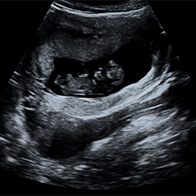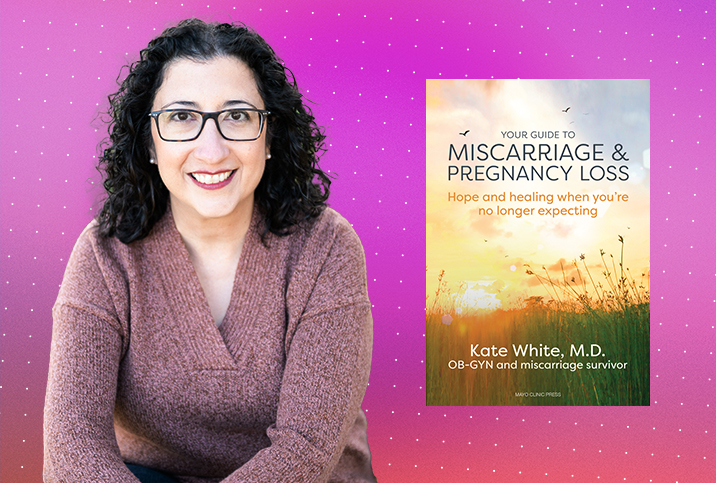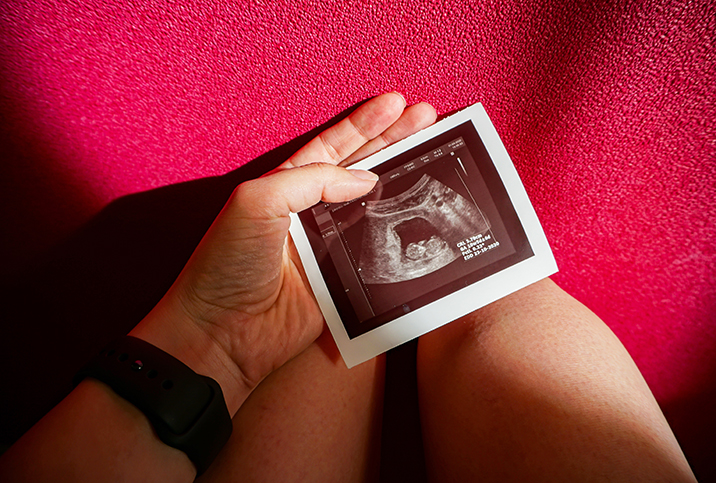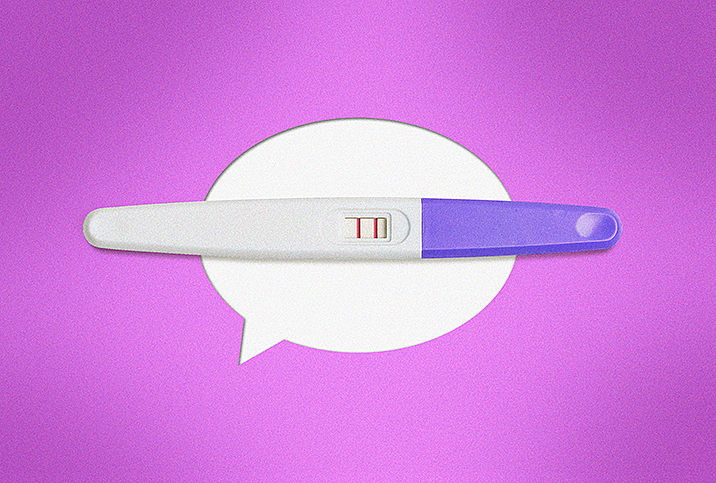Self-Care Is Necessary After Pregnancy Loss
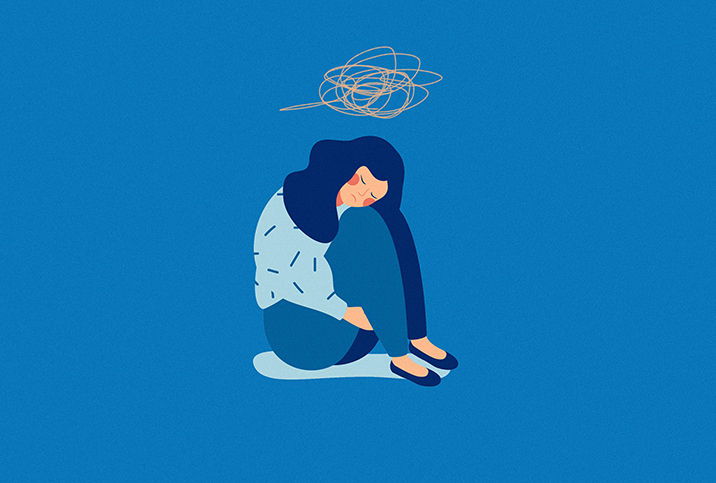
The healing process following a miscarriage isn't linear and looks different for every woman. Grief is a complex emotion with various expressions and can be more challenging to reconcile with for some. Within the grieving process, many sentiments can arise, from guilt, fear, shame, confusion and disappointment to anger and inadequacy. Self-care makes this process easier to manage, and gives you healthier ways to process the complex and deep feelings that linger afterward.
Self-care is an essential step in the healing process, but it can be difficult to know where to begin. Here are just a few of the ways you can take care of yourself following a pregnancy loss.
Avoid isolating yourself
Pregnancy loss is a traumatic event that often feels like (or becomes) a solitary experience, mainly because we don't talk about it. The misconceptions and stigma around pregnancy loss perpetuate this cycle.
When I had my miscarriage in 2017, I was under the assumption that pregnancy loss was uncommon. For an entire year, I kept my miscarriage a secret, and my mental health suffered as a result. I maneuvered through life disconnected from my interpersonal relationships because I felt no one could fully relate to my experience. Isolation became a way to sit in my grief and avoid confronting it head-on.
Although it may feel like an isolated experience, it's important to remember you aren't alone.
The first step in my self-care journey began the moment I decided to share my story. Surprisingly, my courage to be transparent about my miscarriage inspired other women to open up to me about their losses.
Although it may feel like an isolated experience, it's important to remember you aren't alone. Around 10 percent to 15 percent of confirmed pregnancies end in loss. However, the number of losses is hypothesized to be much higher, as pregnancy loss often occurs before a woman even knows she has conceived. Studies show that the most common type of loss, miscarriage, happens anywhere between 10 percent and 25 percent of the time. So, chances are you've probably met someone who's experienced a pregnancy loss. Be willing to share your story with other women, as you never know who may open up to you about theirs. It may not be comfortable talking about it at first, but it will get easier the more you do it, and keep you from isolating yourself.
Find support systems
Your support systems during this challenging time are pillars on the healing journey. A 2019 study conducted by the American Journal of Obstetrics & Gynecology concluded that "women experience high levels of posttraumatic stress, anxiety and depression after early pregnancy loss." Navigating self-care becomes easier when you have a solid and loving community to lean on.
Friends and family are the most common type of support system. Your loved ones will always be a great resource to lean on because you know they care about you and your well-being. Lora Shahine, M.D., FACOG, recommends "telling close, supportive friends and family the [pregnancy] news earlier, so you have the support throughout no matter what happens."
Social media is an excellent tool for connecting with people and finding others who have gone through the same experiences as you.
The only potential downside to sharing is that, sometimes, the mother's grief can be overshadowed by the family's grief. "Not everyone is great at managing their own emotions about grief," said Kate White, M.D., an OB-GYN from Boston Medical Center/Boston University School of Medicine. She explained that she often had to comfort family members after the loss of her daughter.
Finding support from your loved ones is important, but sometimes third-party solutions might be a better fit for your self-care journey. Pregnancy loss and grief support groups can be helpful in understanding your experience with help from outside perspectives. It can give you resources on how to process your loss and offer a space to talk aloud about your experience without judgment, fear of hurting someone or feeling like a burden.
I found my support system through an online community. Social media is an excellent tool for connecting with people and finding others who have gone through the same experiences as you. These virtual spaces offer the benefits of grief support groups with the option to be anonymous, making it easier to participate if you choose.
Seek professional help and counsel when needed
Never feel afraid to seek professional help from your doctor, as they can offer guidance after pregnancy loss. "Practitioners should try to recognize that healing from miscarriage is both physical and emotional. It's easy to focus on the medical piece, but validating the emotional side of recovery is important for patients, too," explained Shahine.
She recommends women have a follow-up visit after pregnancy loss, as this allows them to ask questions they may have missed after the loss was initially determined. It's also an opportunity to gain valuable insight into resources available to women experiencing loss.
One-on-one therapy can be a valuable tool on your self-care journey, as an objective third party can help untangle the complexities of your grief and be an empathetic ear. "A therapist is the person who cares about you, but not too much. They still have compassion and empathy, but they're on the outside [of your life]. That's what makes them a safe space to reveal all the [emotions] you feel, knowing that you won't hurt the person in front of you," stated White. She realized during her grieving process that therapy was needed for her to move forward.
Like White, I also attended therapy after my miscarriage. When I felt I couldn't talk to anyone out of fear of burdening or hurting my loved ones, I knew my therapist was a third party I could trust with the fullest extent of my emotions.
"Therapy meant a safe space to cry every week with a person who cared about my well-being but wasn't invested in my life, like my family and loved ones," described White. Therapy can be expensive, which leads many people to opt out of this service. However, there are plenty of psychotherapy collective websites with providers who perform services at a steeply reduced cost for those in need.
Take care of your well-being
Practicing self-care should be an everyday occurrence. You should put forth the effort to do activities and habits that will place you in a better mind frame. It might seem selfish at first to devote so much time to yourself after losing your child. However, this will help improve your general well-being over time and you will slowly start to feel like yourself again. A few self-care routines you can engage in include:
- Meditation and mindfulness techniques: Practices like yoga and meditation can be helpful in easing stress, anxiety and depression. Mindfulness will help you focus on remaining aware and present.
- Holistic methods: These methods, such as craniosacral therapy, address the physical, emotional and spiritual aspects of pregnancy loss. They offer a different approach to viewing how loss affects the body and can be beneficial in healing through natural methods.
- Hobbies: Getting back to old hobbies you used to participate in will help you feel like yourself again and bring joy. Starting a new hobby is a great way to try something different and take your mind off the loss.
- Writing: Writing out your thoughts can help with understanding the magnitude of how you feel. Journaling about your experience can be therapeutic and can be a tool to track your growth.
- Reading: This is a wonderful resource to understand more about the emotional impacts of pregnancy loss, learn about others' experiences and find ways to manage as you move forward.
- A tribute to your unborn child: Finding ways to remember your child preserves their memory and can give you a sense of closure.
The greatest takeaway in your self-care journey in post-pregnancy loss is remembering that healing is an ongoing journey, and everyone's will be different. Some days you may feel wonderful, and others you may be filled with grief—and that is okay. It will become easier to balance as the days pass, but it requires patience and the understanding that pregnancy loss isn't the end, nor does it speak to your ability to carry a child.








